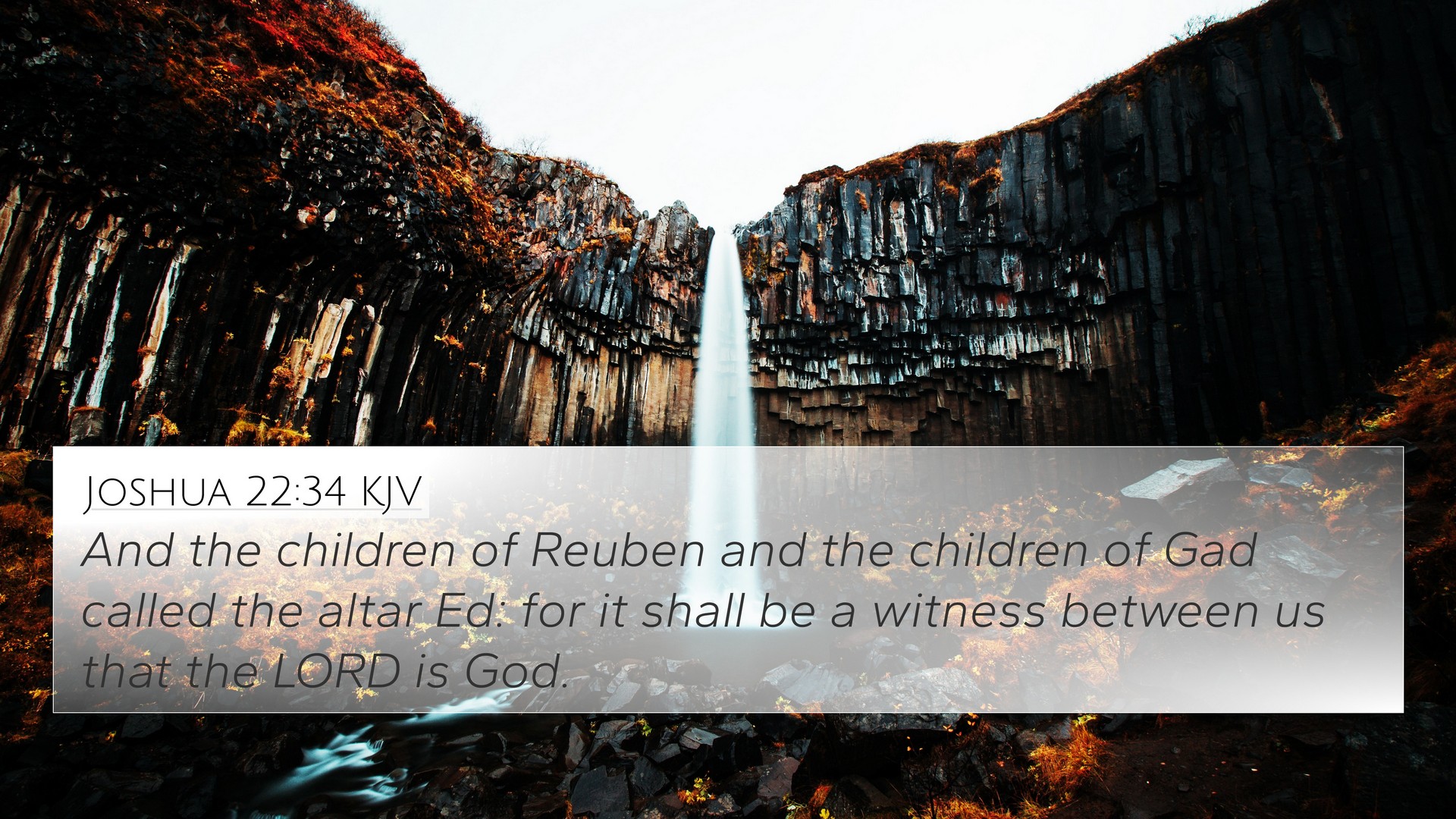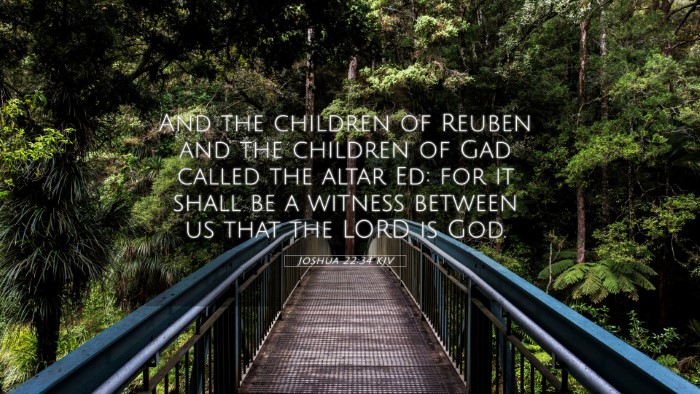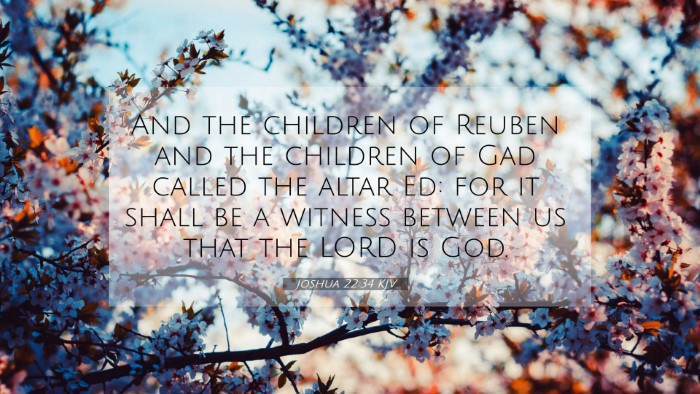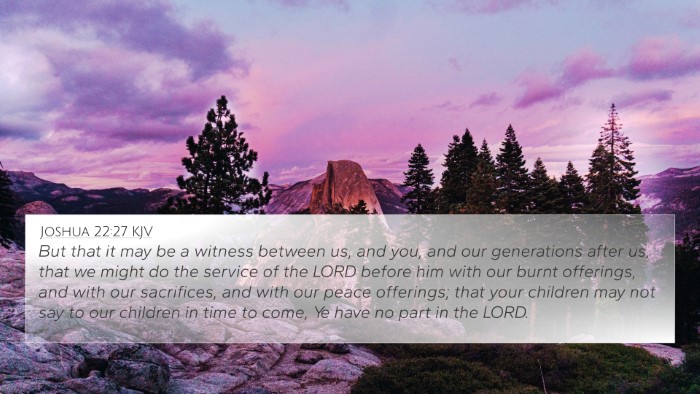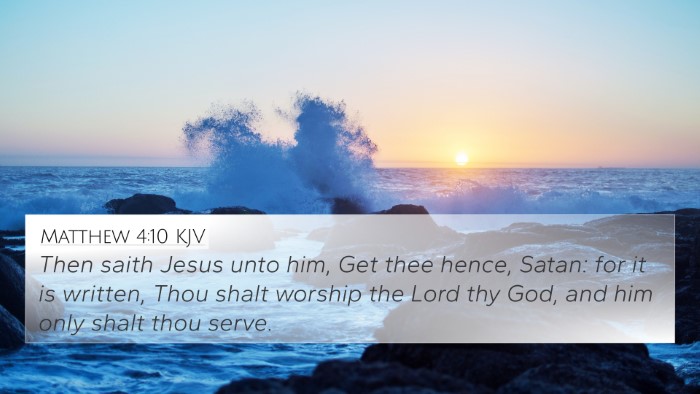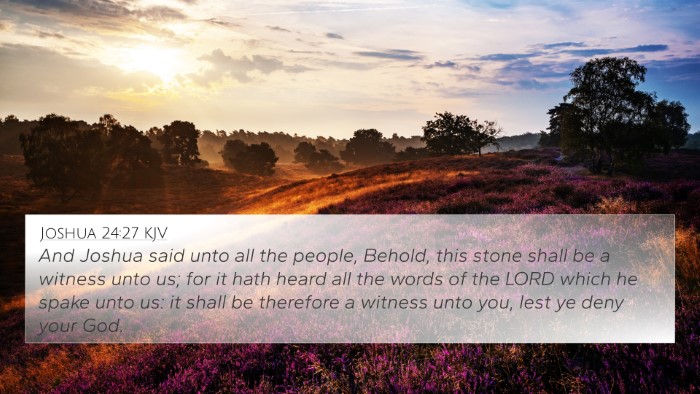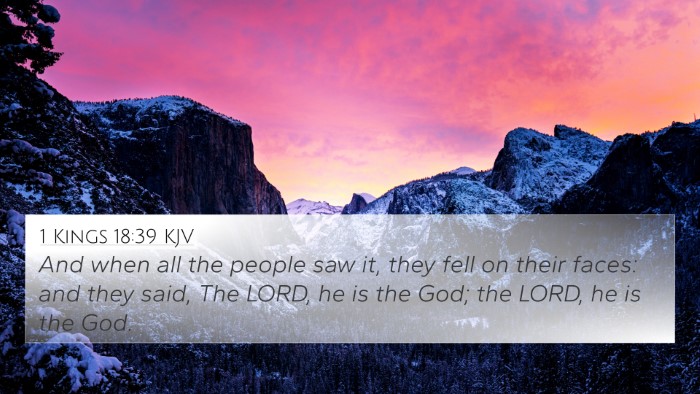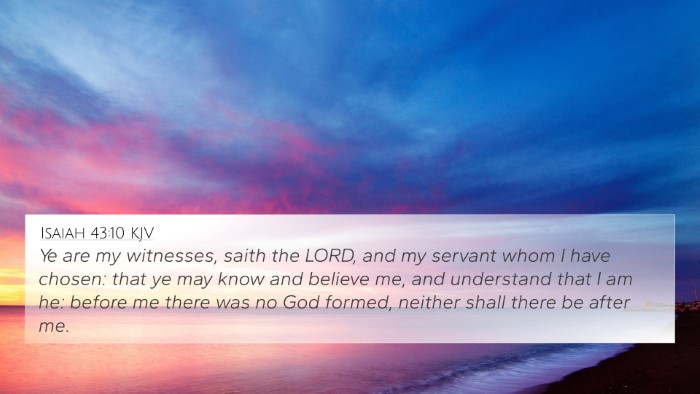Understanding Joshua 22:34
The book of Joshua details the history of Israel's conquest of Canaan. In Joshua 22:34, we witness a significant moment in the narrative, focusing on the communication between the tribes and the importance of unity among the Israelites. This verse states:
"And the children of Reuben and the children of Gad called the altar Ed, for it shall be a witness between us that the LORD is God."
This verse symbolizes the commitment of the tribes to keep the Lord at the center of their identity and their actions.
Commentary Insights
Matthew Henry's Commentary
Unity and Testimony: Matthew Henry emphasizes the purpose of the altar built by Reuben and Gad. He notes that it was not merely a place of sacrifice but a reminder to future generations of their allegiance to God. It served as a witness to their shared faith and a symbol of their unity.
Albert Barnes' Notes
Naming the Altar: Barnes discusses the significance of the name "Ed," meaning "witness." He explains that this act reflects the progressive revelation of God’s plan for His people and underscores the importance of divine witness in maintaining the covenant relationship with God.
Adam Clarke's Commentary
Historical Context: Clarke provides insights into the historical backdrop of Israel's tribes. He highlights that the construction of the altar by Reuben and Gad was crucial in combatting potential conflict over territorial divisions. The altar reaffirmed their commitment to worship the one true God, distinguishing themselves from local pagan practices.
Key Themes and Messages
- Spiritual Unity: The building of the altar symbolizes the necessity for unity in the Israelite community, reminding them of their collective identity as God's chosen people.
- Witness of Faith: The altar served as a perpetual witness of God's covenant and divine presence among His people, reinforcing the importance of remembrance in their faith journey.
- Preventive Measure: It was an act aimed at preventing strife and ensuring clear communication about spiritual commitments, important for long-term peace and faithfulness.
Bible Verse Cross-References
Joshua 22:34 connects with several other Scriptures, enriching our understanding through thematic connections:
- Exodus 20:24: "An altar of earth you shall make for Me…" - reinforces the concept of altars as places of witness and worship.
- Deuteronomy 12:5: "But you shall seek the place where the LORD your God chooses, out of all your tribes, to put His name for His dwelling…" - emphasizes the establishment of places for worship and remembrance.
- Joshua 4:7: “Then you shall answer them that the waters of the Jordan were cut off before the ark of the covenant…” - shows the importance of memorials to remember God's deeds.
- 1 Samuel 7:12: “Then Samuel took a stone and set it up between Mizpah and Shen, and called its name Ebenezer, saying, ‘Thus far the LORD has helped us.’” - illustrates the idea of setting up monuments as testimonies to God’s faithfulness.
- Psalms 78:5: “For He established a testimony in Jacob and appointed a law in Israel…” - highlights the significance of imparting faith to future generations.
- John 4:24: “God is Spirit, and those who worship Him must worship in spirit and truth.” - connects to the authentic worship that the altar embodies.
- Hebrews 13:15: “Therefore by Him let us continually offer the sacrifice of praise to God…” - relates to the concept of worship and the offerings made unto the Lord.
Conclusion
Joshua 22:34 is a rich verse that captures the essence of unity and commitment in worship among the Israelites. It serves as a powerful reminder of the role that communal faith plays in building identity and preventing discord. Through careful examination of this verse and its connections with other Scriptures, we gain deeper insights into God's enduring covenant with His people and the importance of establishing memorials to His faithfulness.
Further Study
The use of cross-referencing Bible verses like Joshua 22:34 can enhance our understanding of the Scriptures. By employing tools for Bible cross-referencing, such as concordances and thematic studies, readers can explore intricate connections between Biblical texts, reinforcing their comprehension of scriptural teachings and historical contexts.
